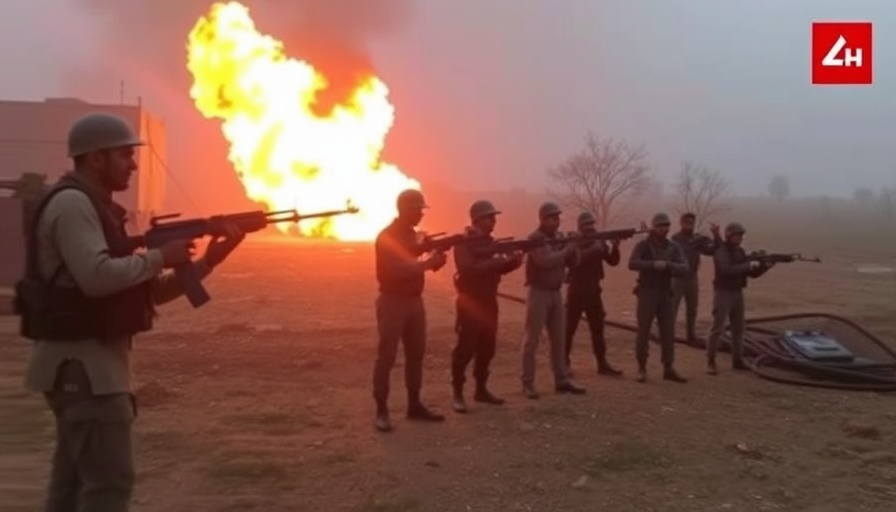
The Unraveling of the Truce: India Accuses Pakistan of Violations
In a significant escalation of tensions, India has publicly accused Pakistan of breaching their historic ceasefire agreement, triggering retaliatory military actions along their contentious border. This latest development marks another chapter in a long saga of conflict that has defined India-Pakistan relations for decades. The government’s claims include instances of cross-border fire, which India argues contravene the agreements put in place to foster a more stable relationship between the two nuclear powers.
The Importance of the Ceasefire Agreement
Initially implemented in 2003, the ceasefire agreement was intended to reduce hostilities in the Kashmir region, a territory claimed by both nations but administered by India. This fragile peace has been periodically shattered, resulting in civilian casualties and heightened military readiness on both sides. The current hostilities not only threaten to unravel years of diplomatic efforts but also pose risks for the region's stability, potentially igniting a broader conflict in South Asia.
International Implications of Renewed Conflict
With the geopolitical landscape rapidly changing, particularly in light of China's growing influence in the region, the resurgence of tensions between India and Pakistan is troubling for international relations. The United States and other global powers are watching closely, knowing that renewed hostilities could expand beyond regional borders. Diplomatic efforts must be intensified to mediate and contain this prolonged conflict to prevent a wider crisis that could affect global peace and stability.
Consequences for Civilians Amidst Military Engagement
Civilians living along the border are often caught in the crossfire whenever tensions escalate. Reports indicate that families have been displaced, and local economies are suffering due to the instability. Women and children, who are often the primary victims in war zones, find themselves exposed to violence and deprivation. Addressing the humanitarian aspect of this conflict should be prioritized alongside diplomatic negotiations.
The Role of Media and Information Control
In the digital age, the flow of information plays a critical role in shaping public perception and policy decisions. Both India and Pakistan utilize media narratives to frame their perspectives on the conflict, often leading to heightened nationalism and public response. Understanding both sides of the narrative is essential for any meaningful dialogue aimed at conflict resolution. Misleading information or propaganda can further exacerbate tensions and inhibit constructive discussions.
Opportunity for Reconciliation and Peace Strategies
Despite the recent uptick in hostilities, there remains a glimmer of hope for stability through continued dialogue and negotiation. Constructive engagement from both governments, supported by robust international mediation, is critical for a sustainable resolution. Programs that focus on youth engagement, economic collaboration, and cultural exchanges can help build trust and lay the groundwork for long-term peace.
Future Predictions: What Lies Ahead for India and Pakistan?
The trajectory of Indo-Pakistani relations will likely depend on several factors, including political stability within both countries, leadership dynamics, and public sentiment. Analysts warn that if both countries do not strive for de-escalation and dialogue, they risk a spiral into further conflict. Regional dynamics will continue to play a crucial role as both nations navigate their complex history and modern challenges amidst international scrutiny.
India and Pakistan stand at a crossroads once more, with their respective futures hinging on diplomatic engagement and willingness to sustain peace. By focusing on avenues for dialogue and mutual understanding, both nations can steer towards a less volatile and more secure future for their citizens.
 Add Row
Add Row  Add
Add 




Write A Comment